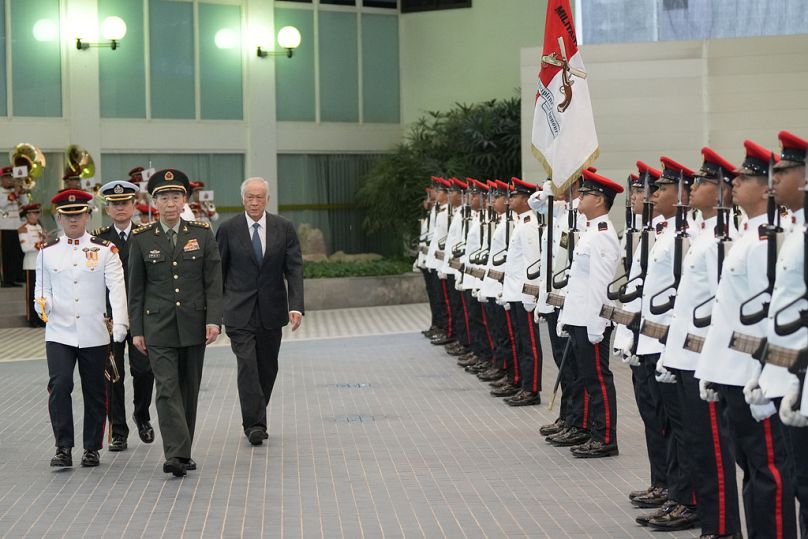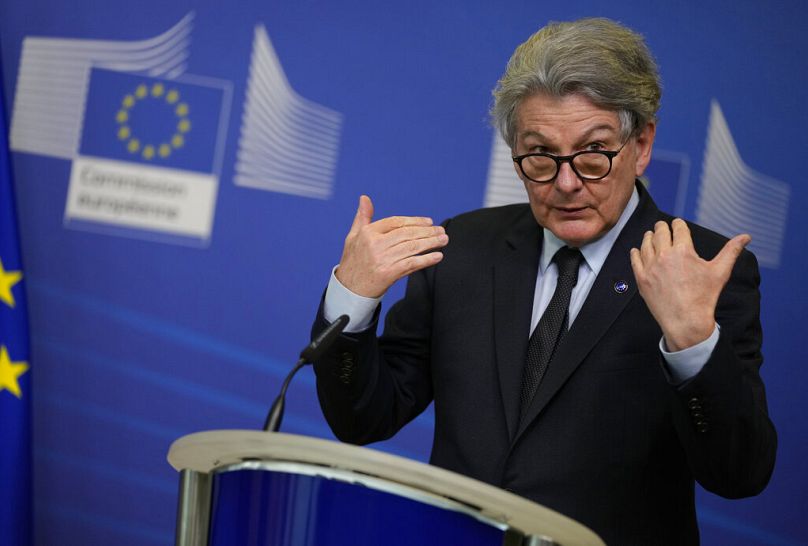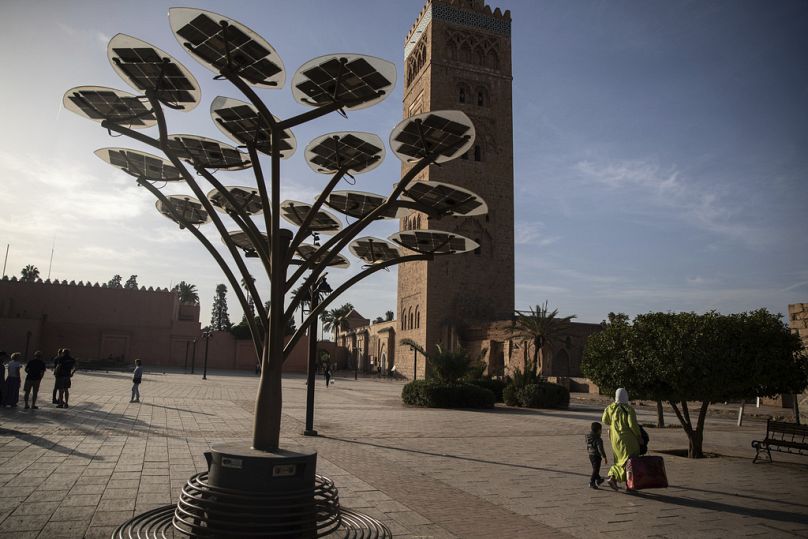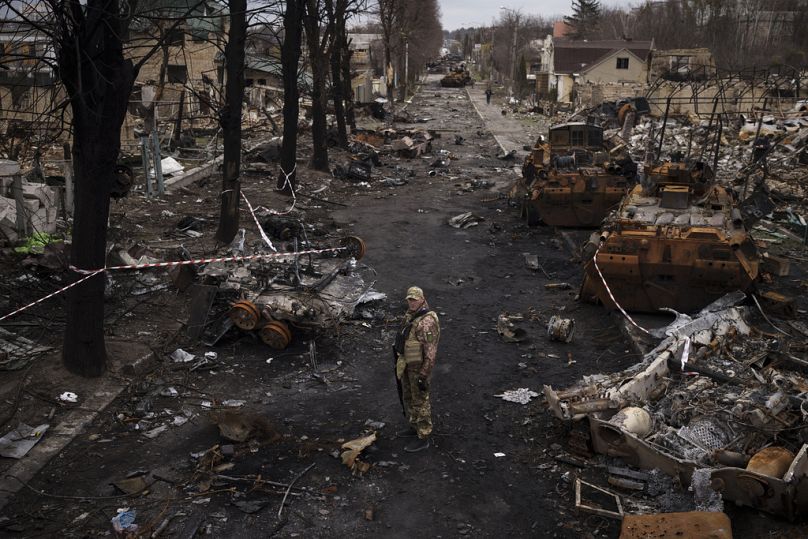In a world where digital increasingly comes first, tech superpowers are those everyone will be listening to, and the EU is now being put to the test of whether it could and would stand amongst them, Cristian Gherasim writes.
 ADVERTISEMENT
ADVERTISEMENT
The world we live in is getting more complex by the minute, and the image of a global superpower is no longer synonymous with swarms of soldiers armed to the teeth or conquered swaths of land or peoples under one’s control.
More than ever, power is about handling data, communications, exchanging information, and becoming more connected.
Modern wars are fought as much online as they are on the battlefield.
More so, what used to be resources such as oil or minerals pitting nations against each other is now more about tech infrastructures, the know-how in accruing and managing information, and innovation.
Take, for instance, Taiwan, the small island nation at the heart of the US and China's locking of horns. It is by no means a resource-rich country.
In fact, it is where most of the chips and semiconductors are manufactured — and that could be enough to make it the new centre of the world.
Nations that will have a say in tomorrow’s world — or rather, the ones that matter — now must keep tech, telecom, and data infrastructure at the top of the list of priorities to constantly nurture and develop.
The fact of the matter is that Brussels is lagging behind
In a US vs China-dominated world, technology will make or break nations and alliances, and the European Union is in no flattering position, even when it comes to the most basic infrastructure.
For instance, back in January 2022, the European Court of Auditors said EU members should step up efforts to deploy 5G, given how the next big leap in mobile networking has been lagging in some member states.
Another EU institution is sounding the alarm, with the European Investment Bank signalling that significant investment in digital infrastructure is needed across the bloc to support broad-based economic development.
The European Commission has indeed earmarked €2 billion from the Digital Europe Programme for various enterprises to adapt to and embrace new developments.
Yet, when facing tech juggernauts like the US and China, that might not be enough.
Does the EU want to be a relevant world power?
Innovation is not the EU’s only concern. Beefing up its data infrastructure is a must.
It is expected that mobile data usage across the bloc is to increase by 25% by 2030, but with unchanged and ageing telecom infrastructure, this will result in definite gridlock.
In order to meet the digital target for 2030, Brussels needs to revamp the old infrastructure and, more importantly, create a better and newer one.
Yet, as things stand today, the EU is falling behind North America and Asia, and that brings not only security risks but also hampers its economy.
If Brussels wants to remain relevant, it can’t do it without investing in communication infrastructure or further innovations.
Otherwise, the new digital world will be marked by only two major superpowers — and the EU won't be amongst them.
We overcame COVID lockdown limitations thanks to tech
It’s no secret that without the internet, remote work and any forms of schooling and education would have come to a grinding halt during major crises like the COVID-19 pandemic.
The tectonic event that struck everyone around the world in equal measure back in 2020 was probably the first time in our collective and recent history where we came to realise how important and dependent we truly are on technology, telecommunications, and internet infrastructure.
Having a good data infrastructure is now indispensable in getting jobs, education, helping with food security, military, and even healthcare.
From the most developed nations, which built their prosperity partly on acknowledging and acting on this, to the least developed, hoping one day to get there, no one can afford to get left behind.
Digital progress can help those more unfortunate, too
In Afghanistan, one of the most impoverished countries in the world, access to the internet — limited as it is — has allowed girls to continue their online classes.
Since the early 2000s, companies such as Ericsson and Investcom have been helping to set up communication networks for aid workers and various UN programs.
Telecommunication companies remain amongst the very few places women in Afghanistan are still allowed to work.
Significant digital transformation brought development and prosperity in Uganda, where internet connectivity helped UNDP collaborate with the likes of Jumia, an e-commerce firm, to create jobs and income-earning opportunities.
In Nigeria, the open-source mobile e-health platform SORMAS helped to almost triple the number of people covered by healthcare services.
In Malawi and Kenya, a web-based early warning system monitors weather hazards saving lives and crops. And the list goes on.
What this goes to show is that the entire world is moving in the same direction — towards more innovation — and reaping the benefits.
Russia's aggression against Ukraine showed why tech matters
Moreover, Moscow's ongoing aggression against Ukraine has forced Brussels to see first-hand the importance of 21st-century communication.
With the raging war next door, Europe reacted to the terrible footage of Russian war crimes from Bucha, Irpin, and Hostomel with unprecedented solidarity not seen during conflicts on the continent just decades earlier.
Once the footage from Ukraine made it online, the true face of the war was revealed, helping to change the understanding of what is happening and uniting the continent like never before.
And while planning for our joint European future, revamping digital infrastructure would not only offer better education and work opportunities for Europeans but also help Brussels project its soft power outside of the bloc.
In a world where digital increasingly comes first, tech superpowers are those everyone will be listening to. And the EU is now being put to the test of whether it could and would stand amongst them.
Cristian Gherasim is an analyst, consultant, and journalist with over 15 years of experience focusing on Eastern and Central European affairs.
At Euronews, we believe all views matter. Contact us at view@euronews.com to send pitches or submissions and be part of the conversation.















